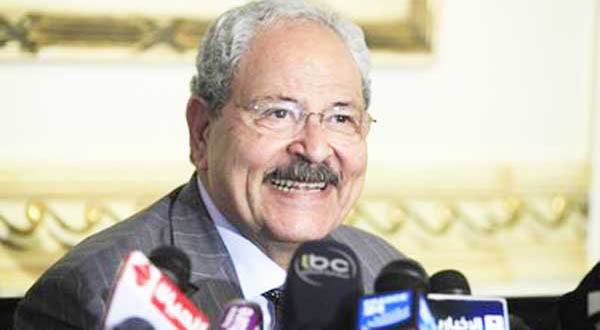 CAIRO: Minister of Finance Samir Radwan said that there is no “fiscal space” to increase the expenditure on the education and health sectors, during a press conference on Monday.
CAIRO: Minister of Finance Samir Radwan said that there is no “fiscal space” to increase the expenditure on the education and health sectors, during a press conference on Monday.
Titled “The Egyptian Economy: Short and medium term prospects”, the conference was organized by the Egyptian Center of For Economic Studies (ECES) and brought together academia, businessmen, journalists and analysts to discuss the prospects of the Egyptian economy after the revolution.
Radwan explained that the government spent 25 percent of its budget on wages, 25 percent on subsidies, 25 percent on debt, and 25 percent on other services.
However, the minister said that although fiscal space is very limited, it is not impossible.
He said that one way to remedy this issue is reallocating the investment budget from spending on “Mickey Mouse projects” to projects on health and education.
Radwan said he didn’t see any other realistic solution for the next budget cycle but assured those present that it would be a different case for the one after that.
“Even though this is just a temporary government there is no problem in having a clear vision for the future of the country, even if this cabinet has to leave tomorrow,” he added.
The minister acknowledged the wasting evident in public spending, saying he knew exactly where it was and how to fix those problems.
“In some cases like petroleum and energy subsidies, if we stop the leakage of subsidies to those who do not need it, the next day we can save $2 billion,” he said.
Before decisions were to be made regarding issues in the budget like subsidies, wage reform and privatization a public debate would be organized to discuss the issues, particularly with the youth coalitions which participated in the revolution, he added.
The cabinet was looking at emulating the successful Malaysian example of dividing administration and ownership of public companies, allowing government ownership with competent and competitive private sector administration, the minister explained.
Radwan said that he was working with a $ 2 billion deficit this year, and expected an $8-10 billion deficit next year.
“Discipline is there,” he said, “but it is very important to strike a balance between justified demands and fiscal responsibility.”
Radwan explained the phases the government was going through, saying that the first phase which was the first 45 days after the ouster of president Hosni Mobarak, was one of crisis management.
The protests, particularly the wage related ones, had to be dealt with immediately as some demands were clearly justified. But this created a dilemma as the revolution came at great cost to the economy and the government had to keep its eye on the growing budget deficit.
Eventually, the government’s focus shifted from crisis management to stimulus and encouraging the economy, he said.
According to Radwan, the Cabinet has recognized that the economy should be private sector driven but should also concentrate on social equity and justice.
He said that the Cabinet had urged the courts to speed up fraud and corruption investigations recognizing that “justice delayed is justice denied.”
Magda Qandil, director of research at ECES, said that political and institutional reform was needed in enforcing rules and laws that increase flexibility in the labor market and, therefore, would create incentives for formal jobs in the private sector.
“The ongoing political reform agenda bodes well for investment in quality
institutions, good governance, transparency, rule of law, and fighting bureaucracy and corruption,” she said.
For Qandil, political reforms will reinforce fundamentals towards boosting investors’ confidence and securing sustainable and equitable growth to attain higher welfare for Egypt’s growing population.
“The priorities for the social agenda in the near term should include rationing government spending, including subsidies’ reform, to have a better targeted scheme that would eliminate waste in spending and establish better equity,” Qandil said.
“In parallel, the agenda should target a reform of the tax system to mobilize additional revenues and increase efficiency in tax collection and better compliance,” she added.



